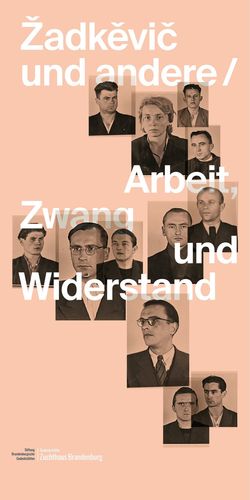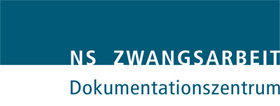Events
Please note, the main language of all events is German - unless differently noted.

Žadkěvič and others | Labour, force and resistance
Exhibition opening
14 March 2024 | 7 pm
The Czech-Russian chemist Konstantin Žadkěvič is employed by the Heldenheim company in Berlin-Tempelhof from 1940. In spring 1943, Žadkěvič makes contact with forced labourers from all over Europe. Together with them, he wanted to fight for a united socialist Europe after the fall of the Nazis. To this end, he establishes contact with the German resistance group "European Union". When this group was exposed, the Gestapo also arrested Žadkěvič and other members of his group in October 1943.
Žadkěvič and four leading members were sentenced to death and murdered, while a further six received prison sentences. After the war, the Žadkěvič group was forgotten. This exhibition at the Brandenburg-Görden Prison Memorial makes their courageous story visible. For the station in Berlin, it has been expanded to include some new content and elements.
Welcome address:
Dr. Christine Glauning | Dr Christine Glauning | Head of the Nazi Forced Labour Documentation Centre
Grußworte:
Sweta, Jersy und Arkadi Sanzarowski from Belgium | Relatives of the Ukrainian forced labourer Michail Santscharowski, member of the Žadkěvič group
The execution of resistance fighters in Brandenburg-Görden
Dr. Sylvia de Pasquale | Director of the Brandenburg-Görden Prison Memorial und Memorial to the Victims of the Euthanasia Murders
Einführung in die Ausstellung
Maximilian Vogel | Curator of the exhibition and educational assistant
Brandenburg-Görden Prison Memorial und Memorial to the Victims of the Euthanasia Murders
Für eine bessere Planung bitten wir um Anmeldung unter veranstaltung-sw(at)topographie.de
